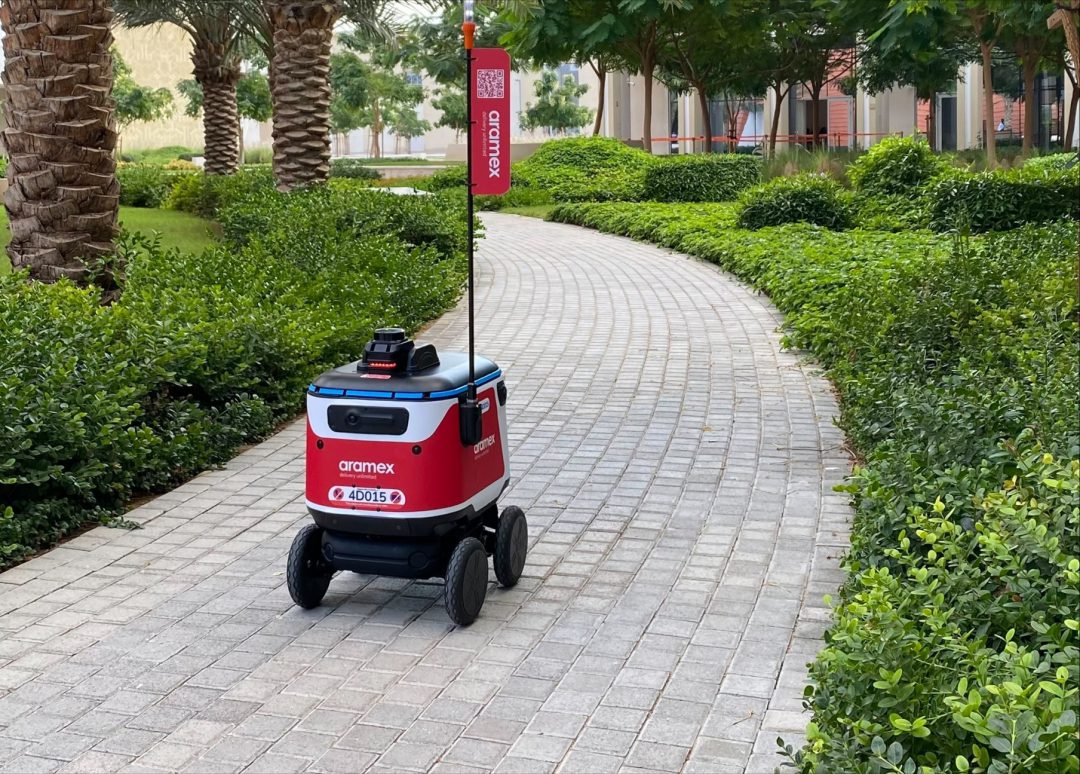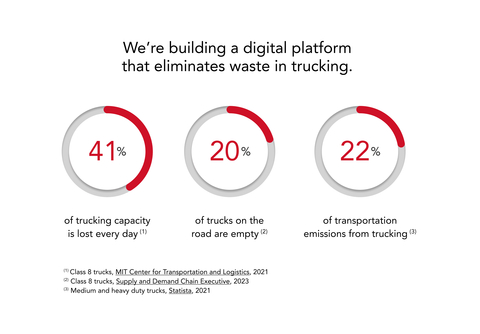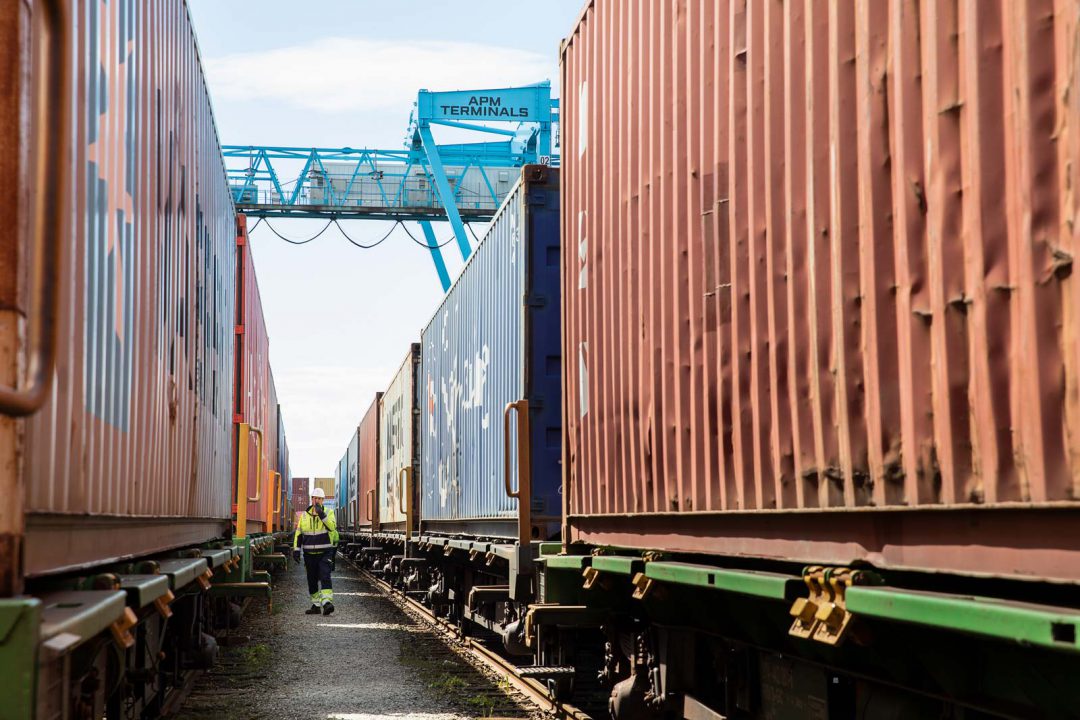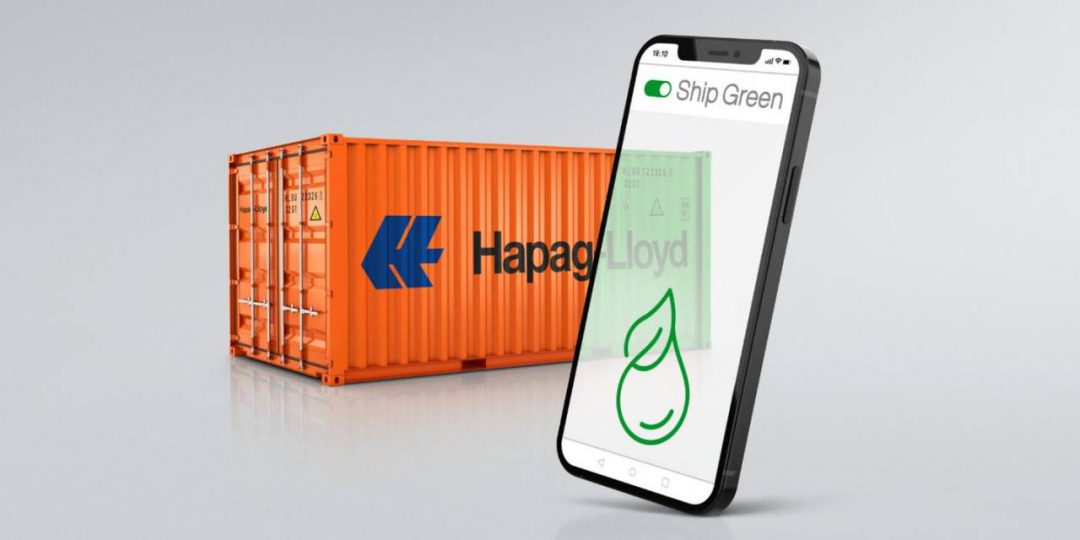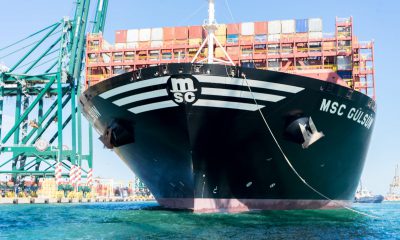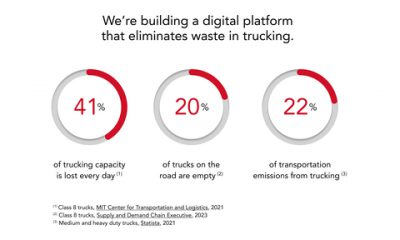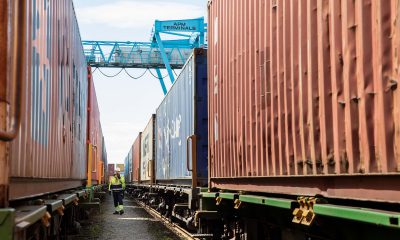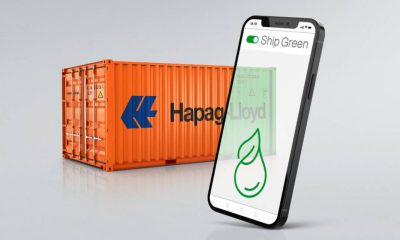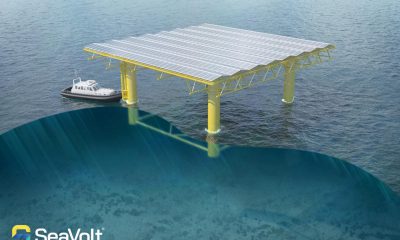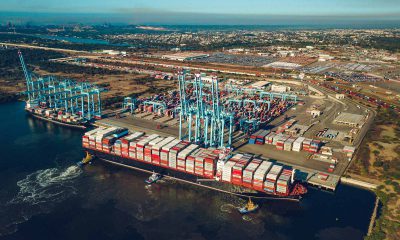Aramex, a leading global provider of comprehensive logistics and transportation solutions, announced the successful testing of its drone and roadside bot deliveries in Dubai. This is part of the Company’s “Future Delivery Program” aimed at enhancing last-mile logistics using smart shipping solutions to enable quicker, more sustainable, and cost-effective deliveries.
The initial tests were conducted at the Rochester Institute of Technology in partnership with BARQ EV, a leading commercial drone delivery service provider in the UAE, and Kiwibot, a Colombia-based company specializing in delivery robotics. The tests were performed with the support of the Dubai Civil Aviation Authority, Dubai Future Foundation and Dubai Smart City.
Aramex utilized the drone delivery technology provided by BARQ EV, which is capable of operating multiple and continuous flights at long-range distances and different environments. The drones are equipped with multidirectional sensors and a reliable fleet management system enabling Aramex to have high accuracy across order placements, dispatch management, drone flight routing, and deliveries.
In addition, Kiwibot’s self-driving ground delivery vehicles use a combination of high-tech sensors, cameras, radars, and artificial intelligence to navigate through surroundings and obstacles. It also utilizes an advanced GPS navigation system to generate virtual maps, establish multiple routes, and change course depending on delays or obstacles.
Alaa Saoudi, Chief Operating Officer – Express at Aramex, said: “The expansion of our Future Delivery Program in the UAE is a testament to our drive to be at the forefront of last-mile delivery logistics and generate more value for our customers by providing a faster, safer, and greener ways of delivering packages. Importantly, it also enables Aramex to further contribute to UAE’s sustainability ambitions as we embark on our mission to transition our fleet to emission-free vehicles and achieve our climate pledge to reach Carbon neutrality by 2030. We are excited about the next chapter of the program and further scale this service to reach more customers.”
Angad Singh, Global Director – Innovation of Aramex, said: “The initial introduction of robotic and drone deliveries in the UAE coincides with a time of growing customer demand for fast and reliable delivery services. With this testing, we wanted to enable an integrated ecosystem of innovative products which shall ultimately offer more convenience for our customers. Therefore, in addition to the autonomous delivery vehicles, we have also rolled out mobile outlet trucks that allow us to operate drones and bots, as well as offer pickup and drop-off points at any location close to our customers. We look forward to implementing drone and bot deliveries in the UAE and beyond as we progress our sustainability plans to reduce our carbon footprint and contribute to the global effort to combat climate change.”
Ahmed Al Mazrui, CEO of BARQ EV, said: “As one of the first commercial drone operating companies in the UAE offering drone delivery services, BARQ EV is pleased to partner with Aramex and provide them with all test flight scenarios in the United Arab Emirates. We believe this collaboration with Aramex will be the great first step to scale up the drone delivery service in the logistics industry in the UAE.”
Felipe Chávez, CEO and Co-Founder of Kiwibot, said: “This partnership between Aramex and Kiwibot revealed a shared vision to shape greener cities. We are committed to a zero-carbon future, seeking to enhance sustainability in the last-mile delivery and shipping industry. This pilot showed that Kiwibot is more than a delivery service, it’s also efficient operations, an extraordinary experience, and harmonious mobility.”
Dr. Yousef Al Assaf, President of RIT Dubai, said: “As RIT Dubai is building centers of Energy and Sustainability, Smart Cities, and Innovation and Entrepreneurship, our partnership with Aramex aligns to achieve the vision of these centers. This partnership gives students and faculty the opportunity to integrate with leading organizations, and be well prepared for the future, which will hopefully help in creating new businesses that will diversify the economy and sustain the environment.”
This initiative follows Aramex’s successful test of autonomous drone delivery in Muscat, Oman. Aramex plans to expand its drone and robot delivery testing across the Middle East and Africa region, as well as other core markets where it operates.
